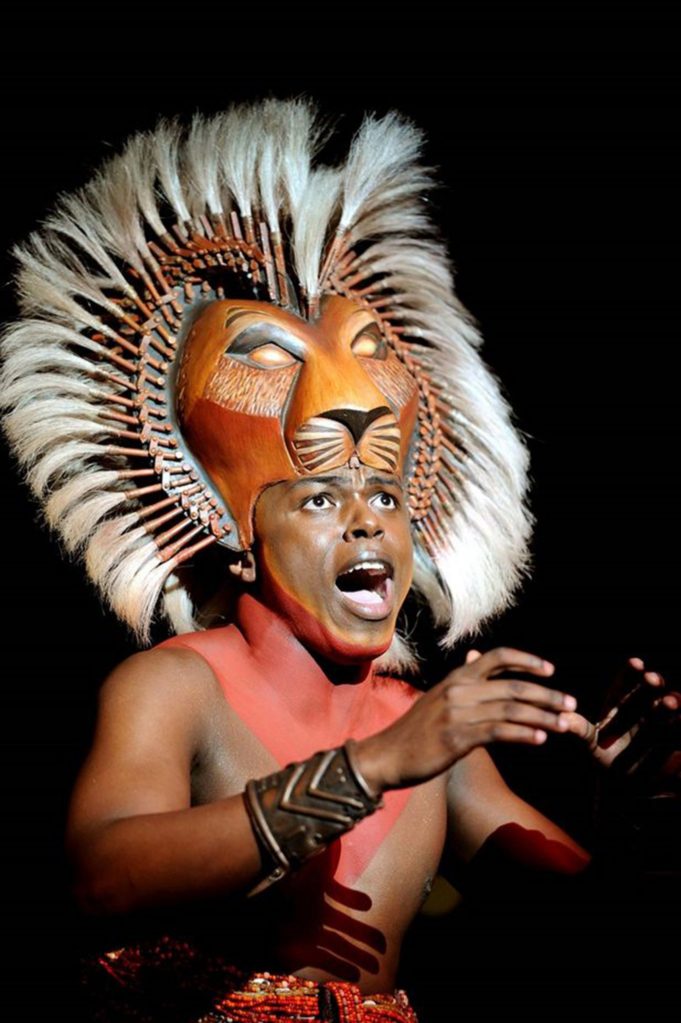Set in Kenya’s Hell’s Gate National Park, Disney’s animated film, The Lion King celebrates 20 years on June 15. The Lion King’s stage adaptation of the original 1994 film has grossed more than $5 billion across the globe. The original film is the highest grossing hand-drawn film in history.
It tells the story of Simba, a young lion who is to succeed his father, Mufasa, as king. But after Simba’s uncle Scar murders Mufasa, Simba is fooled into thinking he was responsible and flees into exile in shame and despair.
While growing up with two wastrels, Simba is given some valuable perspective from his friend Nala and his shaman, Rafiki, before returning to challenge Scar to end his tyranny.
The story is set in the kingdom of lions in east Africa, with influences from biblical stories of Joseph and Moses, as well as William Shakespeare’s Hamlet.
Though it has had great success, the production of The Lion King has also had its problems. A dispute arose between Disney and the family of South African Solomon Linda, who composed the song, ‘The Lion Sleeps Tonight’, originally titled ‘Mbube’ in 1939. In July 2004, the family filed a lawsuit for $1.6 million in royalties from Disney. Two years later, Linda’s heirs reached a legal settlement with Abilene Music who held the worldwide rights and licensed the song to Disney.
In 1997, three years after the release of The Lion King, Walt Disney produced the musical stage adaptation of the same name, with the first show in Minneapolis in the United States. The musical went on to become one of the most successful in Broadway history and is still running across the globe to this day.
Britain’s stage production of The Lion King casts a huge number of South Africans. In the current run, 25-year-old Nicholas Nkuna is wowing audiences as the third South African to be cast as Simba, following Brian Temba and Andile Gumbi. Before heading to Britain to play Simba, Nkuna was the second youngest black Phantom in the musical The Phantom of the Opera.
“I auditioned for the show for two years and got a call back for the final in the third year. I went to Florida in America to do my final call back. Towards the end of Phantom, they rang me to let me know I got the job,” says Nkuna.
In July 2012, Nkuna moved to Bristol to start rehearsals for the spectacle.
Playing the lead is a huge responsibility and expectations are high. But as time went on, Nkuna says he eased into the role.
“It was incredible; it was eye-opening. The standard of performance is different, the preparation is different. With The Lion King, there’s acting, there’s singing and dancing and you also have the animal elements to it. So you’re half a lion, half a human,” he says.
“You need to learn how to move like a lion. It was interesting to do those workshops. We did Javanese movements. There’s certain cultural depth that they do that’s sort of similar to how humans would move animal-like.”
After two years of traveling with The Lion King, Nkuna has decided to end his journey as Simba to focus on his music and other business adventures.
But the show must go on. In March 2013, The Lion King was launched in Brazil and for the first time in Portuguese. It has been performed in six other languages. It has also been seen on every continent besides Antarctica.
The creators of The Lion King are probably sitting somewhere saying to themselves, ‘Hakuna Matata’, as the Lion King could enthral audiences for decades to come.
The Soul Of Simba
The opening scene of The Lion King is unforgettable. As the yellow African sun rises over the horizon, a Zulu voice cries ‘Nants ingonyama bagithi Baba’. It means ‘Here comes a lion, Father’.
That voice belongs to South African award winning musician Lebohang Morake, but to the world of arts and entertainment he’s known as Lebo M.
Morake grew up in Soweto, Johannesburg. From a young age, he started singing in a local pop band. In his first interaction with the music business he saw corruption. At the age of 12, he released his first single Celebration which received a lot of local success. However, Morake only received $20.
After finding success in Lesotho, Morake received a scholarship to study music in the United States (US). It was there that he met world-renowned composer Hans Zimmer. The two worked together on the score for the film The Power of One.
Years later, Hans Zimmer was hired to score the most successful animated movie in history, The Lion King. Zimmer wanted to make the music authentically African and there was only one person he had in mind for the job.
Zimmer traveled to South Africa to find Morake. The two returned to the US where they created a soundtrack to the film that won them numerous awards as well as a Grammy for best instrumental arrangement with accompanying vocal for The Circle Of Life.
Riding on the success of the film, Morake was then commissioned to write the music for The Lion King musical which instantly became a Broadway hit. Morake composed new songs for the production which went well with the music from the original movie.
It has become one of Broadway’s longest-running shows with productions in several countries around the world.
Morake’s original compositions and voice can be heard in a number of films including Chicken Little, Mighty Joe Young, Congo and Tears of the Sun. When you listen to Morake sing, you may not understand the lyrics but you will understand why everyone calls him the voice of The Lion King.
